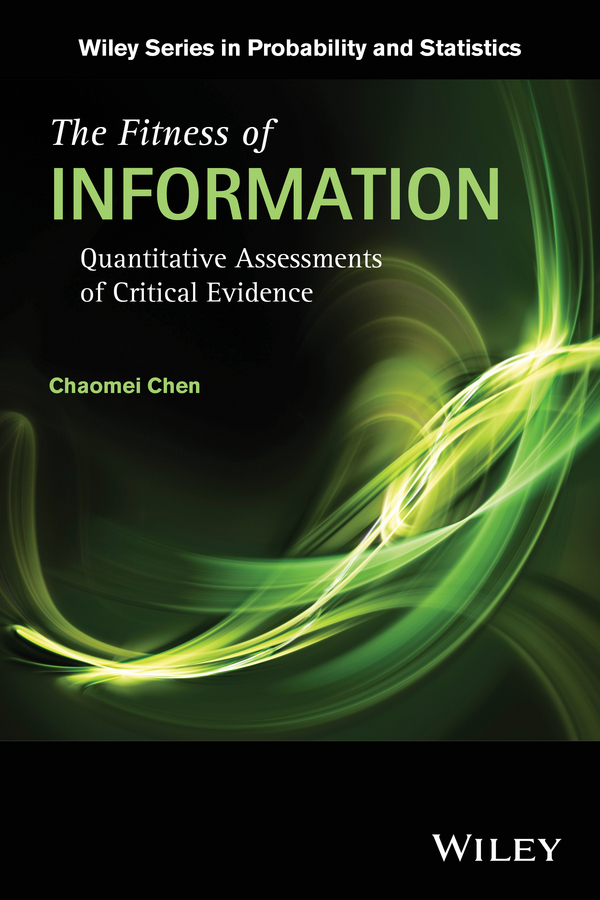Электронная книга: Chaomei Chen «The Fitness of Information. Quantitative Assessments of Critical Evidence»

|
Theories and practices to assess critical information in a complex adaptive system Organized for readers to follow along easily, The Fitness of Information: Quantitative Assessments of Critical Evidence provides a structured outline of the key challenges in assessing crucial information in a complex adaptive system. Illustrating a variety of computational and explanatory challenges, the book demonstrates principles and practical implications of exploring and assessing the fitness of information in an extensible framework of adaptive landscapes. The book’s first three chapters introduce fundamental principles and practical examples in connection to the nature of aesthetics, mental models, and the subjectivity of evidence. In particular, the underlying question is how these issues can be addressed quantitatively, not only computationally but alsoexplanatorily. The next chapter illustrates how one can reduce the level of complexity in understanding the structure and dynamics of scientific knowledge through the design and use of the CiteSpace system for visualizing and analyzing emerging trends in scientific literature. The following two chapters explain the concepts of structural variation and the fitness of information in a framework that builds on the idea of fitness landscape originally introduced to study population evolution. The final chapter presents a dual-map overlay technique and demonstrates how it supports a variety of analytic tasks for a new type of portfolio analysis. The Fitness of Information: Quantitative Assessments of Critical Evidence also features: In-depth case studies and examples that characterize far-reaching concepts, illustrate underlying principles, and demonstrate profound challenges and complexitiesat various levels of analytic reasoning Wide-ranging topics that underline the common theme, from the subjectivity of evidence in criminal trials to detecting early signs of critical transitions and mechanisms behind radical patents An extensible and unifying framework for visual analytics by transforming analytic reasoning tasks to the assessment of critical evidence The Fitness of Information: Quantitative Assessments of Critical Evidence is a suitable reference for researchers, analysts, and practitioners who are interested in analyzing evidence and making decisions with incomplete, uncertain, and even conflicting information. The book is also an excellent textbook for upper-undergraduate and graduate-level courses on visual analytics, information visualization, and business analytics and decision support systems. Издательство: "John Wiley&Sons Limited"
ISBN: 9781118594100 электронная книга Купить за 5401.5 руб и скачать на Litres |
Другие книги схожей тематики:
| Автор | Книга | Описание | Год | Цена | Тип книги |
|---|
См. также в других словарях:
Life Sciences — ▪ 2009 Introduction Zoology In 2008 several zoological studies provided new insights into how species life history traits (such as the timing of reproduction or the length of life of adult individuals) are derived in part as responses to… … Universalium
education — /ej oo kay sheuhn/, n. 1. the act or process of imparting or acquiring general knowledge, developing the powers of reasoning and judgment, and generally of preparing oneself or others intellectually for mature life. 2. the act or process of… … Universalium
Europe, history of — Introduction history of European peoples and cultures from prehistoric times to the present. Europe is a more ambiguous term than most geographic expressions. Its etymology is doubtful, as is the physical extent of the area it designates.… … Universalium
United Kingdom — a kingdom in NW Europe, consisting of Great Britain and Northern Ireland: formerly comprising Great Britain and Ireland 1801 1922. 58,610,182; 94,242 sq. mi. (244,100 sq. km). Cap.: London. Abbr.: U.K. Official name, United Kingdom of Great… … Universalium
Germany — /jerr meuh nee/, n. a republic in central Europe: after World War II divided into four zones, British, French, U.S., and Soviet, and in 1949 into East Germany and West Germany; East and West Germany were reunited in 1990. 84,068,216; 137,852 sq.… … Universalium
Clinical decision support system — (CDSS or CDS) is an interactive decision support system (DSS) Computer Software, which is designed to assist physicians and other health professionals with decision making tasks, as determining diagnosis of patient data. A working definition has… … Wikipedia
